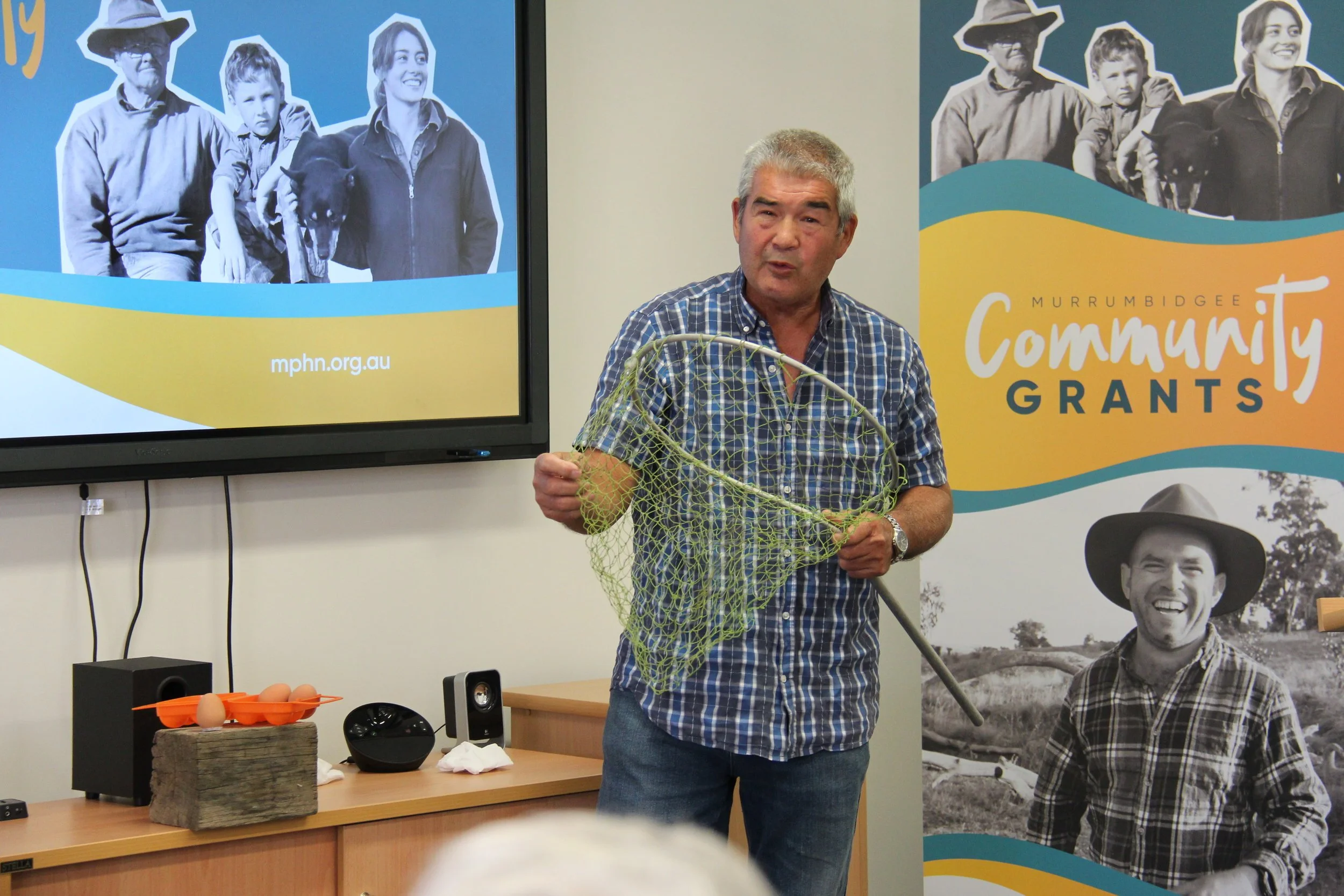More than $550,000 delivered for mental health support in communities
Murrumbidgee Primary Health Network (MPHN) has delivered at least $564,000 in community grants for various activities in local communities to support the mental health and wellbeing of those affected by drought.
MPHN CEO Melissa Neal said these activities have helped reach more than 10,600 people across the region since the Murrumbidgee Community Grants were launched in December last year.
“These grants are designed to help bring communities together and foster social connectedness, and to build networks and support for long term resilience and recovery,” Ms Neal said.
“But it’s not people outside of these communities directing how to best support the mental health and wellbeing of their communities – it’s the people living here applying for funding to facilitate activities they know will achieve the best results.
“We know the support rural communities have for each other, but in times of drought it can be a challenge for activities to be funded at a community level, and this is why these grants are so important.
“What has inspired me over the past five months is the calibre and innovative activities occurring in our communities. The range of activities funded and their success proves how critical it is to ensure community-led initiatives are supported. We have had 12-week wellbeing and exercise programs, concerts, barbecues, sports days, evidence-based training such as Accidental Counsellor and Mental Health First Aid, and smaller workshops.
“As part of our support, we provide each successful grant an event pack containing mental health resources to provide those participating in the activities some practical information to support their mental health and wellbeing, and where to go for additional support if required,” she said.
Federal Member for Riverina and Deputy Prime Minister Michael McCormack; and Federal Member for Farrer Sussan Ley, both said the grants were part of the Australian Government’s Empowering Our Communities program to support mental health and wellbeing in drought affected communities.
“I was pleased to learn about the highly successful wellbeing challenge for women held in Coolamon earlier this year to develop all components of their health including physical, mental, social and emotional,” Mr McCormack said.
“More than 80 rural women of all ages completed the challenge with one participant saying the program allowed her to form friendships and a support network with other participants and she realised many others had the same concerns. Being able to discuss this in an open forum was incredibly uplifting for her.”
“I was pleased to learn the Wakool Preschool Committee received funding for the Mik Maks to perform to the town’s families and children,” Ms Ley said.
“The reality of drought is that the impacts are felt beyond that of adults, and this entertainment provided both the children and their families an opportunity to relax and put day-to-day stresses to one side for a short period.
“As one parent said – her children had a wonderful time and that attending any such concert just wouldn’t have been possible under the drought induced financial stress her family is currently under.”
Both also congratulated Local Landcare staff for undertaking Accidental Counsellor training for its staff and volunteers – one of which was a hairdresser who, by the very nature of her work comes into contact with people who might indicate levels of stress or anxiety, which this training provides ways to respond appropriately.
There are three levels of grants available: up to $1500; $1501 to $10,000; and $10,001 to $30,000; and community groups and businesses are encouraged to submit an application.
For more information about Murrumbidgee Community Grants visit www.mphn.org.au/drought-support or follow the Murrumbidgee Primary Health Network on Facebook or Twitter.
If you or someone you know is experiencing a mental health emergency call the Murrumbidgee Accessline 1800 011 944, Mental Health Line 1800 011 511, Lifeline 13 11 14, or call 000. Or to access the Head to Health website visit www.headtohealth.org.au.
